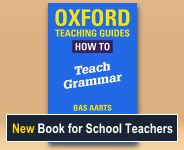Restrictive and non-restrictive relative clauses: Activity 2
Sort these examples of relative clauses from the ICE-GB corpus according to whether you think they are restrictive (identifying) or non-restrictive (adding). Were there any cases where you had difficulty deciding which reading to choose? What clues did you use to help you decide?
|
Restrictive relative clause (identifies) |
Non-restrictive relative clause (adds) |
|
|
|
- That requires popular consent, which has never been forthcoming for the Soviet regime. (W2C-007)
- The Leeds-based bank that began as a savings institution in the middle of the last century… (W2C-005)
- She was asked by the junior flying corps to come to the celebrations they were holding that night. (W2F-020)
- During the C19th people who claimed they had no control over their inappropriate behaviour were seen as malingerers or fakers. (W1A-007)
- The implementation of much public policy was dependent on action by groups which were relatively autonomous. .. (W2A-014)
- But of course the upper classes, who had most dealings with Roman officials and traders, were most susceptible to Romanization. (W2A-001)
- P2 was a right-wing shadow government, ready to take over Italy, that included four Cabinet Ministers… (W2C-010)
- Oddly enough I enjoyed an easier relationship with Mr Grant’s effective successor, Mr Nathan, who was of a younger generation. (W2B-015)
- He had the ability to understand figures and, at a very early age, earned a good salary which he saved and annually invested. (W2F-017)
- Derek said that was the thing he found most extraordinary. (W2F-019)
- The disgust with a war that has taken more than 100,000 lives… (W2C-010)
»
- Printer-friendly version
- Log in to view or leave comments


